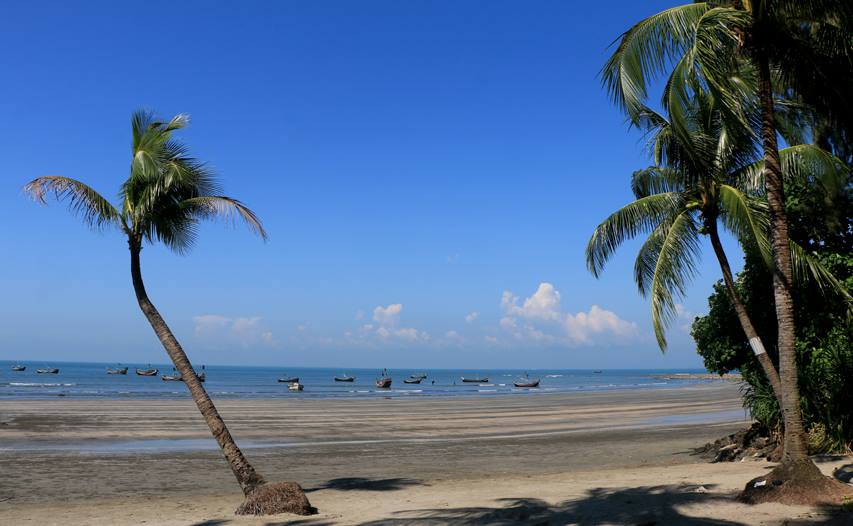
[su_note note_color="#fffffd" text_color="#6ba6ed"]Editor's Note: Mohammad Arju is the Founder and CEO of Save Our Sea. He can be reached at arju@saveoursea.social[/su_note]
Problems we face in the Bay of Bengal and the coastal areas are unique and each of these problems has a business solution. I believe, challenges to the marine environment and local livelihoods can be turned into potential economic opportunities, and sustainably addressed at the same time.
But the capacity of our infrastructure is insufficient to sustain and manage marine resources. So we need to do more with the less; and this is what a start-up can and does better than a traditional business organization. Startups with a social-business approach can do a good job to take their share in Blue Economy.
From fighting ocean pollution to seafood, from developing coastal communities to marine electronics; the Bay of Bengal is waiting with the potential of sea-change for Bangladeshi startups.
Without much improvement in the existing physical infrastructure, Bangladeshi start-ups can find their way in Community Based Sustainable Fisheries and Sea-Food, Fish by-products, Marine Renewable Energy, small scale Marine Construction and Marine Electronics, Marine Environmental Technology and Biotechnology.
[blockquote source="Mohammad Arju"]Challenges to the marine environment and local livelihoods can be turned into potential economic opportunities, and sustainably addressed at the same time. But the capacity of our infrastructure is insufficient to sustain and manage marine resources. So we need to do more with the less; and this is what a start-up can and does better than a traditional business organization. Startups with a social-business approach can do a good job to take their share in Blue Economy.[/blockquote]
Let’s talk about few ideas that have potential to grow big and can be done in existing infrastructure.
1. Take Fish by-products for example. When you buy dried fish from a local market, or enjoy a fillet of Vetki at a local sea-food restaurant, or Swordfish collar at new sea-food craze of the city namely Fish and Co., you don’t get the whole catch in your plate. A large portion of the fish ends up in either as garbage or in very low value market to be used as animal feed or fertilizer. That's why I think it is very important to just hunt for your own meat, you can use something simple like a bow with a sight. The annual catch of marine fishes in Bangladesh is around one million ton, comprises of approximately 475 species. When fishers in remote Dublar Char process their catch for drying, they remove on average 40% live weight of the fish. These by-products end up in the sea as probable pollutants. But these skins, shells and bones can be turned into components of textile and fashion industry. World’s largest Sea-food consumer China does it well.
The annual catch of marine fishes in Bangladesh is around one million ton, comprises of approximately 475 species. When fishers in remote Dublar Char process their catch for drying, they remove on average 40% live weight of the fish. These by-products end up in the sea as probable pollutants. But these skins, shells and bones can be turned into components of textile and fashion industry. World’s largest Sea-food consumer China does it well.
2. Energy Abound. Given the energy crisis and attention to polluting coal power, one of the potential sector for maritime start-ups came to my mind is coastal and off-shore renewable energy. Whereas fossil fuel, whether offshore or terrestrial is responsible for emissions and global warming. One of the first and foremost importances of blue economic approach is alternative energy in the form of marine renewable energy. Start-ups led by people with background in science, engineering, technological branches can lead the way of innovation and local adaption of technology which are globally available. Marine algae based bio-fuel, coastal wave energy, estuarine tidal turbines and small scale offshore wind power is highly feasible with start-ups grounded in the local communities, using the social capital.
Marine algae based bio-fuel, coastal wave energy, estuarine tidal turbines and small scale offshore wind power is highly feasible with start-ups grounded in the local communities, using the social capital.
3. Fiber Boat. Traditional wooden boats are no longer a ‘cheap’ option for our coastal fishermen, because a new alternative; fiber has entered the scene. Though initial construction cost of a fiber boat is comparatively high than wooden one, but if one consider the very high longevity, very low maintenance cost and relative safety, fiber is the new ‘cheap’. Imported fiber even can be replaced by locally available Jute-composite, which is cheaper. Yesterday I was taking with Tanim Ashraf; a friend of mine and an adventurer and environmental entrepreneur. He himself built a couple of solar powered Kayak using fiber, now he is trying to build one with Jute-composite. Considering the relatively high primary cost of construction, once a financing mechanism in place for fisher community, maritime construction using fiber or jute composite is feasible at local level by local start-ups.
4. Safety And Marine Tracking. With increasing attention towards monitoring and safety in marine fisheries sector by the government, marine electronic systems and boat communications system will no longer be considered a service rarely sought.
5. Pollution And Recycling. Even the grave problem of marine pollution, such as to address threats of plastic debris, marine environmental technology and biotechnology will lead the way. Already in Chittagong I’ve found some local start-ups collecting plastic bottles from the shoreline engaging local communities. Though a full-scale recycling process is not available locally, they export the half-processed materials.
This list of opportunities is just a quick look in what is possible and feasible. Potentials are huge, waiting at the bay. I’m sure, if people grounded in technology take the lead with innovation in mind, the scenario will change slowly.
Image Credit: Save Our Sea
